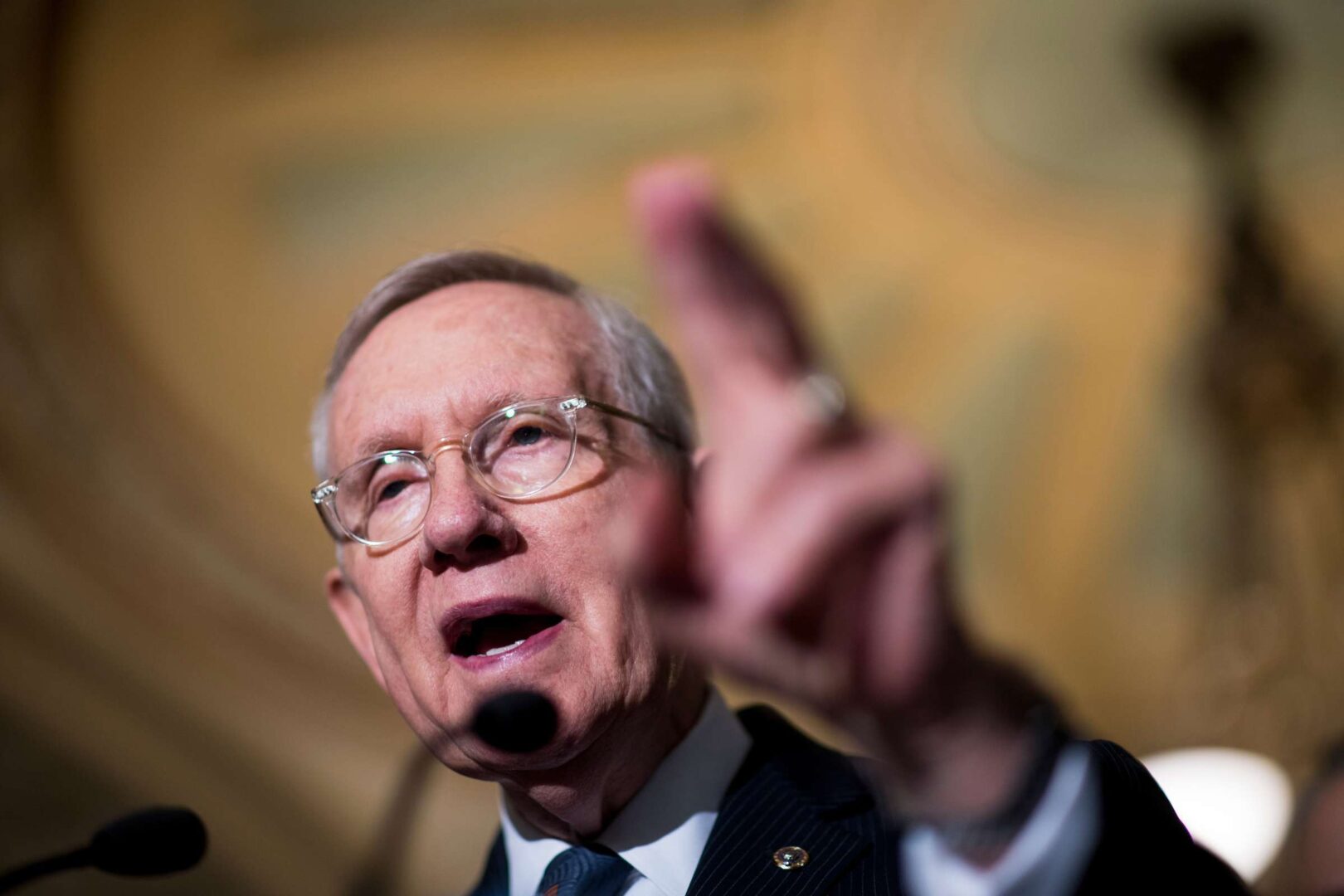He wouldn't sit him because the President isn't King.I'm not sure it would. Although it might take a constitutional crisis.
Imagine if Obama had said in March 2016 (McConnell made his statement in February right after Scalia died): my legal advisors have informed me that the Senate must do their duty, and that in the common law, silence may be read as consent after a reasonable amount of time has passed with no objection. So today I nominate Merrick Garland. If the Senate does not hold a vote on his nomination in 6 months time (or whatever normal time historically took place+some leeway), the Executive Branch will consider Judge Garland confirmed and he will take his seat on the Court in the fall term.
Then Garland shows up to the Court. What happens? At that point, I think you've forced the SCt's hand, and the ball is in their court. Given Roberts prioritization of the Court's legitimacy and public image, I'm not sure what he would do in that situation.
Colleges
- American Athletic
- Atlantic Coast
- Big 12
- Big East
- Big Ten
- Colonial
- Conference USA
- Independents (FBS)
- Junior College
- Mountain West
- Northeast
- Pac-12
- Patriot League
- Pioneer League
- Southeastern
- Sun Belt
- Army
- Charlotte
- East Carolina
- Florida Atlantic
- Memphis
- Navy
- North Texas
- Rice
- South Florida
- Temple
- Tulane
- Tulsa
- UAB
- UTSA
- Boston College
- California
- Clemson
- Duke
- Florida State
- Georgia Tech
- Louisville
- Miami (FL)
- North Carolina
- North Carolina State
- Pittsburgh
- Southern Methodist
- Stanford
- Syracuse
- Virginia
- Virginia Tech
- Wake Forest
- Arizona
- Arizona State
- Baylor
- Brigham Young
- Cincinnati
- Colorado
- Houston
- Iowa State
- Kansas
- Kansas State
- Oklahoma State
- TCU
- Texas Tech
- UCF
- Utah
- West Virginia
- Illinois
- Indiana
- Iowa
- Maryland
- Michigan
- Michigan State
- Minnesota
- Nebraska
- Northwestern
- Ohio State
- Oregon
- Penn State
- Purdue
- Rutgers
- UCLA
- USC
- Washington
- Wisconsin
High Schools
- Illinois HS Sports
- Indiana HS Sports
- Iowa HS Sports
- Kansas HS Sports
- Michigan HS Sports
- Minnesota HS Sports
- Missouri HS Sports
- Nebraska HS Sports
- Oklahoma HS Sports
- Texas HS Hoops
- Texas HS Sports
- Wisconsin HS Sports
- Cincinnati HS Sports
- Delaware
- Maryland HS Sports
- New Jersey HS Hoops
- New Jersey HS Sports
- NYC HS Hoops
- Ohio HS Sports
- Pennsylvania HS Sports
- Virginia HS Sports
- West Virginia HS Sports
ADVERTISEMENT
You are using an out of date browser. It may not display this or other websites correctly.
You should upgrade or use an alternative browser.
You should upgrade or use an alternative browser.
Mayorkas says helloPersonally, I think it should be illegal for a government official to purposely refuse to do their job.
He wouldn't sit him because the President isn't King.
Craze, the argument about the Senate not observing its constutional duties in a reasonable length of time thus resulting in a confirmation of the presidential nominee doesn't sound like saying the President is acting like a king to me.
Sounds more like the Senate Majority Leader is acting like a king.
"The first thing we do, let's kill all the lawyers" - Bill ShakespeareUnder the common law, silence can be interpreted as consent in certain circumstances. That's the crux of the whole hypothetical.
Not much any more..... and I mostly listened anyway.Speaks and writes Russian … too….
What's the Bream he's referring to? Shannon? I'd be on her team any time.lol.
Sometimes tough love is the only way.....Nah, as Brad alluded to, that Supreme Court seat was a clear cut case of payback is a bitch.

If you don’t like the Supreme Court, blame Harry Reid - Roll Call
Opinion — Harry Reid put politics ahead of principle in 2013 and opened the door for Justices Neil Gorsuch, Brett Kavanaugh and soon Amy Coney Barrett.rollcall.com
And they invoked that nuclear option after holding up Bush judicial appointments for years. I have zero sympathy for the Democrats on that one. They changed long established norms and it blew up in their face exactly like they were warned it would.
Republicans own 19 states, if we get to 35 it’s game on I’d wager. Democrats nor Republicans aren’t looking for term limits but I sure as heck amI think we see the breakup of the US into northern east coast and west coast with Illinois - and maybe Minnesota - thrown in, and then the rest of the country on the other. That's the danger, IMO. If it comes to that . . . probably won't be for another 50 years or so.
I hear you about two wrongs don't make a right . . . and Trump, well . . . let's just say point well-taken. His comments weren't the only article I cited.
It appears to me that the party not controlling SCOTUS wants to have a constitutional convention, and the party controlling SCOTUS - and what the constitution says - does not. I won't go accusing you of flip-flopping, but you do say "I used to be all for that." I don't think Tyler Cowen had as much to do with that as SCOTUS flipping to a conservative bent. I could be wrong, and often am these days.
Disagree, they didn't get the consent to bring that Justice up for a vote.Craze, the argument about the Senate not observing its constutional duties in a reasonable length of time thus resulting in a confirmation of the presidential nominee doesn't sound like saying the President is acting like a king to me.
Sounds more like the Senate Majority Leader is acting like a king.
The Democrats have been really good lately about changing things up when shit doesn't go their way and then expecting that everything is just going to go back to hunky dory normal when it suits them after they bulldozed norms. Garland showing up at the Supreme Court saying "I am a judge because the President said so" isn't constitutional. He wouldn't have had the consent of the Senate so he wouldn't be let in. Roberts has made some calls I don't agree with but I don't think he would be foolish enough to set that precedent.
A
anon_6hv78pr714xta
Guest
I don’t think you’re accurately capturing the sentiment of that quote given the context in which it was used.
I'm not interested in capturing the sentiment. Just my sentiment. lolI don’t think you’re accurately capturing the sentiment of that quote given the context in which it was used.
Remember, Doc was high on a mixture of alcohol and opium due to his tuberculosis.
It wasn't illegal.It was illegally stacked when McConnell illegally claimed that he couldn't nominate someone during an election year. He had a legal duty to confirm a qualified candidate and he refused.
Everyone with a brain knew that was bull shit
Unethical, but not illegal.
McConnell and ethics are two words rarely used in a sentence in a positive light.
"Elections have consequences"...Barrack Obama, 2009It wasn't illegal.
Unethical, but not illegal.
McConnell and ethics are two words rarely used in a sentence in a positive light.
Think of it as a corollary of the Presentment Clause. In Article I, the Framers explicitly considered what should happen if the President simply chose not to act on a bill presented to him. That is, if he didn't sign, but also didn't veto it. And they decided that, except in cases where he couldn't return it to Congress because they had adjourned, his failure to act would be treated as consent.Disagree, they didn't get the consent to bring that Justice up for a vote.
The Democrats have been really good lately about changing things up when shit doesn't go their way and then expecting that everything is just going to go back to hunky dory normal when it suits them after they bulldozed norms. Garland showing up at the Supreme Court saying "I am a judge because the President said so" isn't constitutional. He wouldn't have had the consent of the Senate so he wouldn't be let in. Roberts has made some calls I don't agree with but I don't think he would be foolish enough to set that precedent.
Now, in Article II, they did not explicitly consider what should be done if the Senate behaved in the same way. I.e., they seem to have simply assumed that the Senate would vote on any Presidential appointment, rather than try to engage in a sort of legislative pocket veto. What some have argued in this thread is the idea that, absent explicit instructions in the Article, we should look to the common law understanding of consent, and in that context, it's reasonable to cast the Senate's refusal to act as de facto consent. Furthermore, the Framers did explicitly consider what to do when the Senate couldn't act: recess appointments.
Failure of imagination, I guess, on the part of the Framers, not to figure that the Senate might one day simply refuse to do its job, but when you look at the big picture, the idea that silence qualifies as consent isn't out of left field. That said, I don't think a President should try it, and I'm glad Obama decided against it.
Didn’t McConnell refuse to officially go on recess to avoid a recess appointment?Think of it as a corollary of the Presentment Clause. In Article I, the Framers explicitly considered what should happen if the President simply chose not to act on a bill presented to him. That is, if he didn't sign, but also didn't veto it. And they decided that, except in cases where he couldn't return it to Congress because they had adjourned, his failure to act would be treated as consent.
Now, in Article II, they did not explicitly consider what should be done if the Senate behaved in the same way. I.e., they seem to have simply assumed that the Senate would vote on any Presidential appointment, rather than try to engage in a sort of legislative pocket veto. What some have argued in this thread is the idea that, absent explicit instructions in the Article, we should look to the common law understanding of consent, and in that context, it's reasonable to cast the Senate's refusal to act as de facto consent. Furthermore, the Framers did explicitly consider what to do when the Senate couldn't act: recess appointments.
Failure of imagination, I guess, on the part of the Framers, not to figure that the Senate might one day simply refuse to do its job, but when you look at the big picture, the idea that silence qualifies as consent isn't out of left field. That said, I don't think a President should try it, and I'm glad Obama decided against it.
A
anon_6hv78pr714xta
Guest
Not sure, but this is a decent write up of the history of what happened. Pretty fair for NPR:Didn’t McConnell refuse to officially go on recess to avoid a recess appointment?
Similar threads
- Replies
- 11
- Views
- 895
- Replies
- 12
- Views
- 678
- Replies
- 86
- Views
- 4K
ADVERTISEMENT
